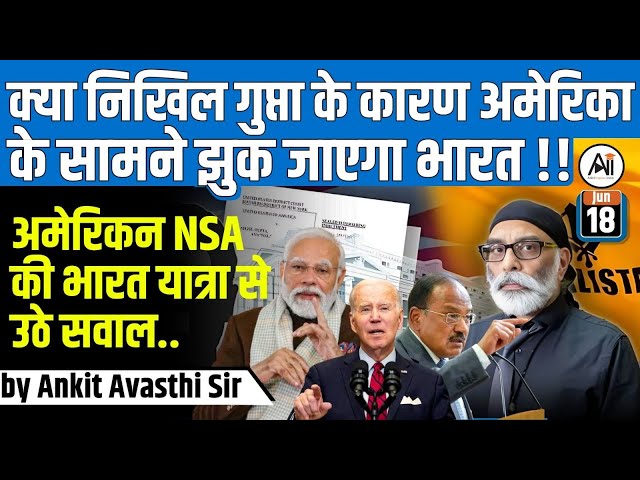
In recent developments, the United States finds itself entangled in a controversy surrounding Gurpatwant Singh Pannun, a prominent Khalistani separatist. This issue has gained significant attention, as it involves allegations of international espionage and assassination plots, with far-reaching implications for U.S.-India relations.
Allegations of an Assassination Plot
Reports have surfaced suggesting that the Indian government dispatched an operative named Nikhil Gupta on a covert mission to eliminate Gurpatwant Singh Pannun. This drastic measure highlights the threat that Pannun, a leading figure in the Khalistani movement, poses to India’s national security.
Nikhil Gupta’s Detention in the Czech Republic
The plot took an unexpected turn when Nikhil Gupta was detained in the Czech Republic. The details surrounding his arrest remain murky, but it is clear that his detention has international repercussions. Following his arrest, Gupta was transferred to the United States, raising questions about the U.S. government’s next steps.
High-Stakes Diplomacy
As the situation unfolds, Jake Sullivan, the U.S. National Security Advisor, is currently in India. Sullivan’s visit is seen as a significant diplomatic move, potentially aimed at addressing the Pannun controversy among other strategic issues. This high-level engagement underscores the importance of the situation and the intricate nature of U.S.-India relations.
The Broader Context
Gurpatwant Singh Pannun has long been a contentious figure. As a vocal advocate for the creation of Khalistan, an independent Sikh state, Pannun’s activities have been a source of tension between India and various international entities. His advocacy, often marked by inflammatory rhetoric and calls for violence, has led to his designation as a terrorist by the Indian government.
The Role of the United States
The U.S. finds itself in a challenging position. On one hand, the U.S. has historically championed human rights and freedom of expression. On the other, it must navigate its strategic partnership with India, a crucial ally in the Indo-Pacific region. The transfer of Nikhil Gupta to U.S. custody adds another layer of complexity, as the U.S. must balance its legal obligations with diplomatic considerations.
Potential Outcomes
The Pannun controversy is likely to have significant implications for international relations. If India and the U.S. can successfully navigate this delicate situation, it could strengthen their strategic partnership. However, mishandling the issue could lead to diplomatic friction and impact broader geopolitical dynamics.
Conclusion
As the world watches closely, the Pannun controversy serves as a reminder of the intricate and often precarious nature of international diplomacy. The coming days will be critical in determining how this issue is resolved and what it means for the future of U.S.-India relations.
Stay tuned for further updates on this developing story.
![]()
